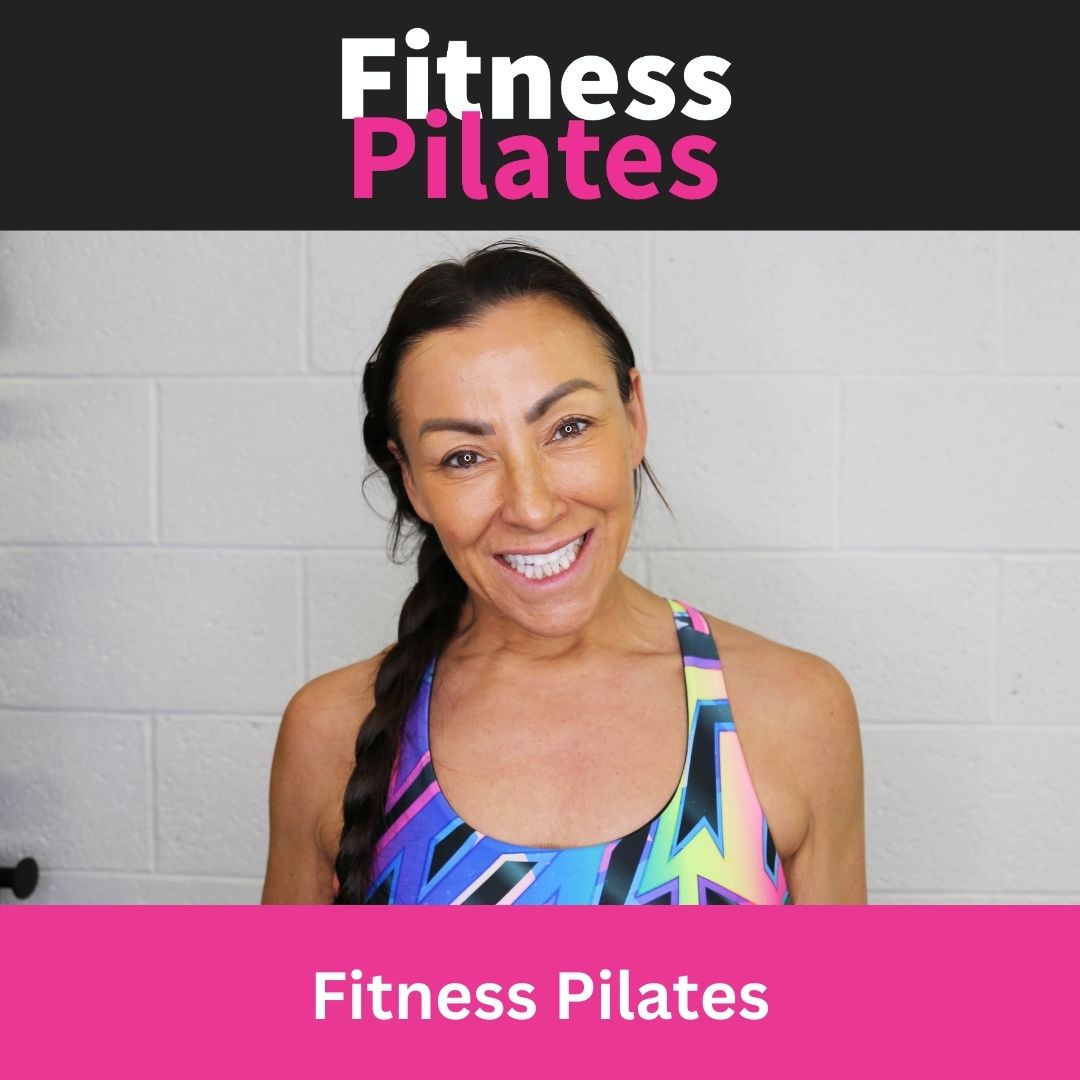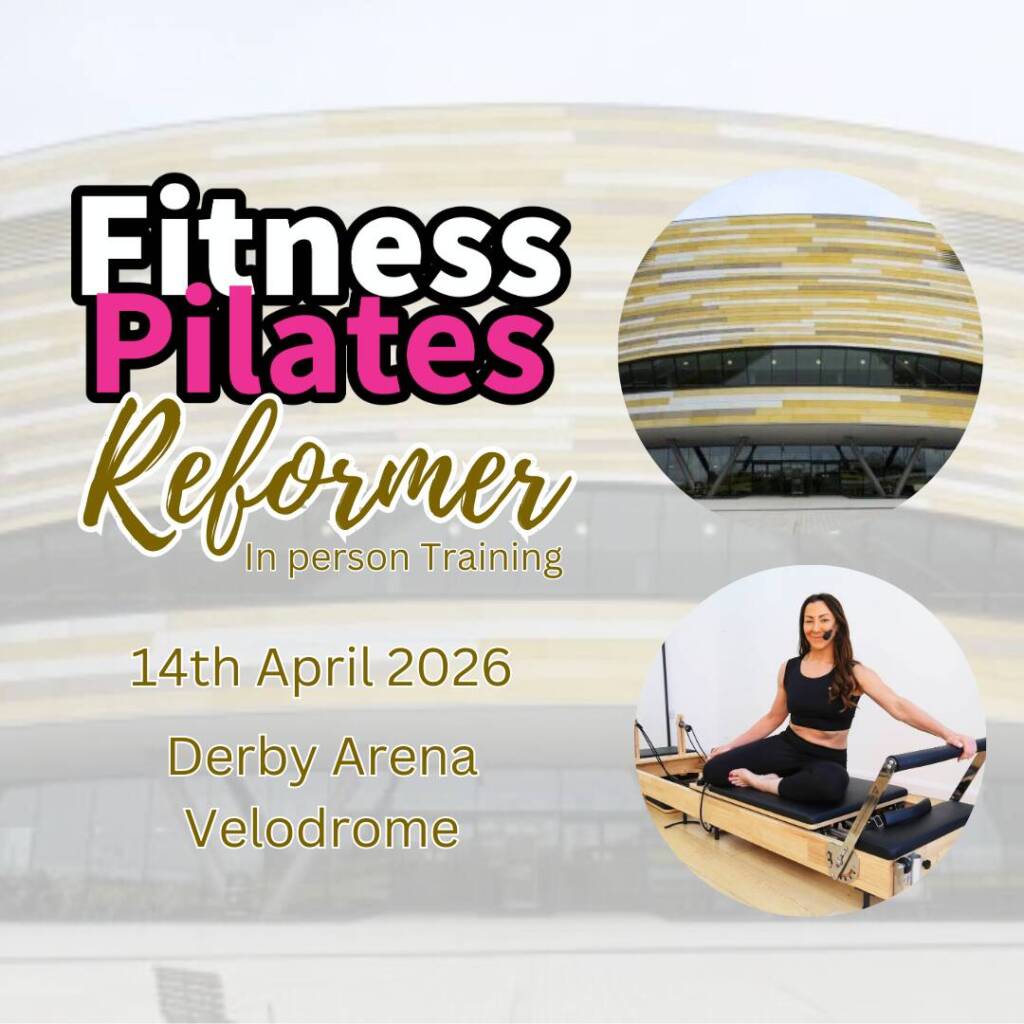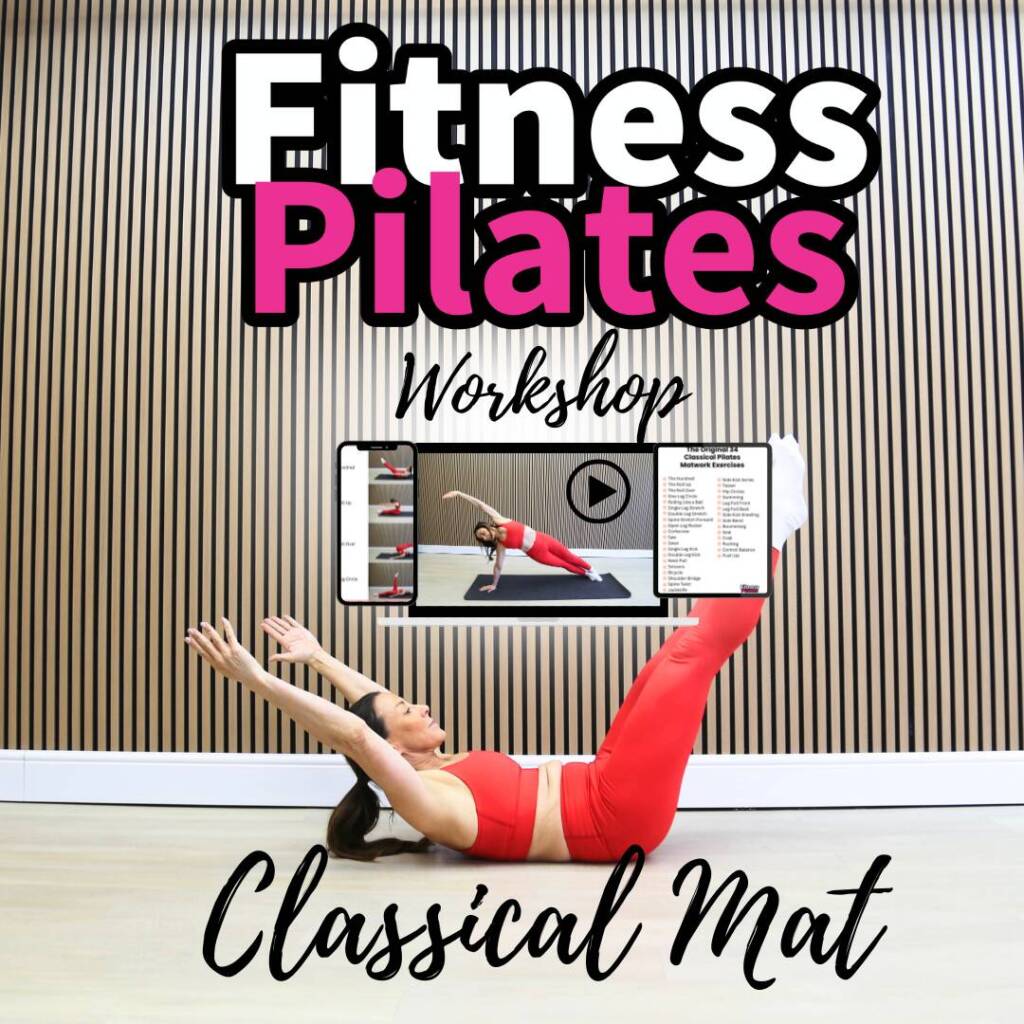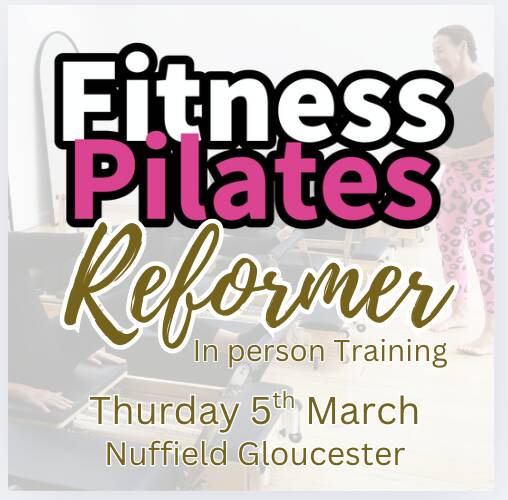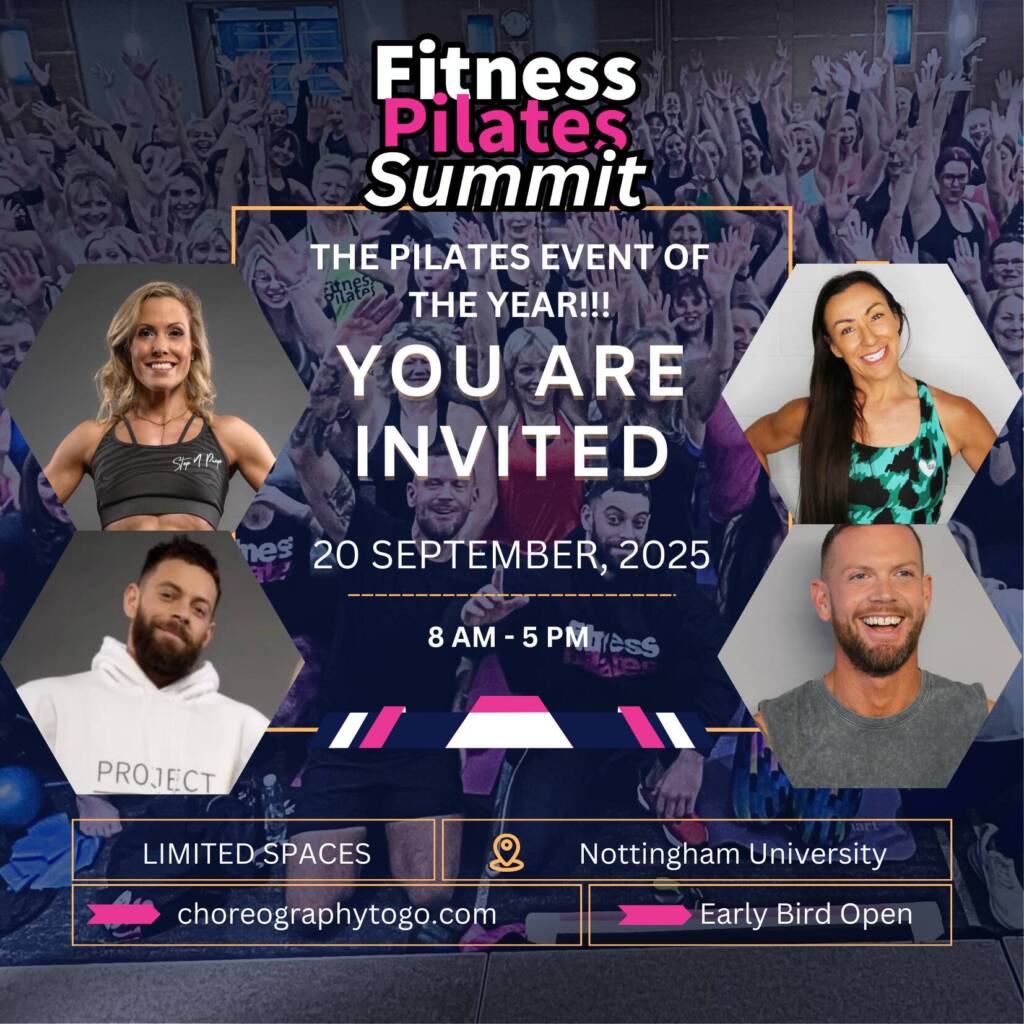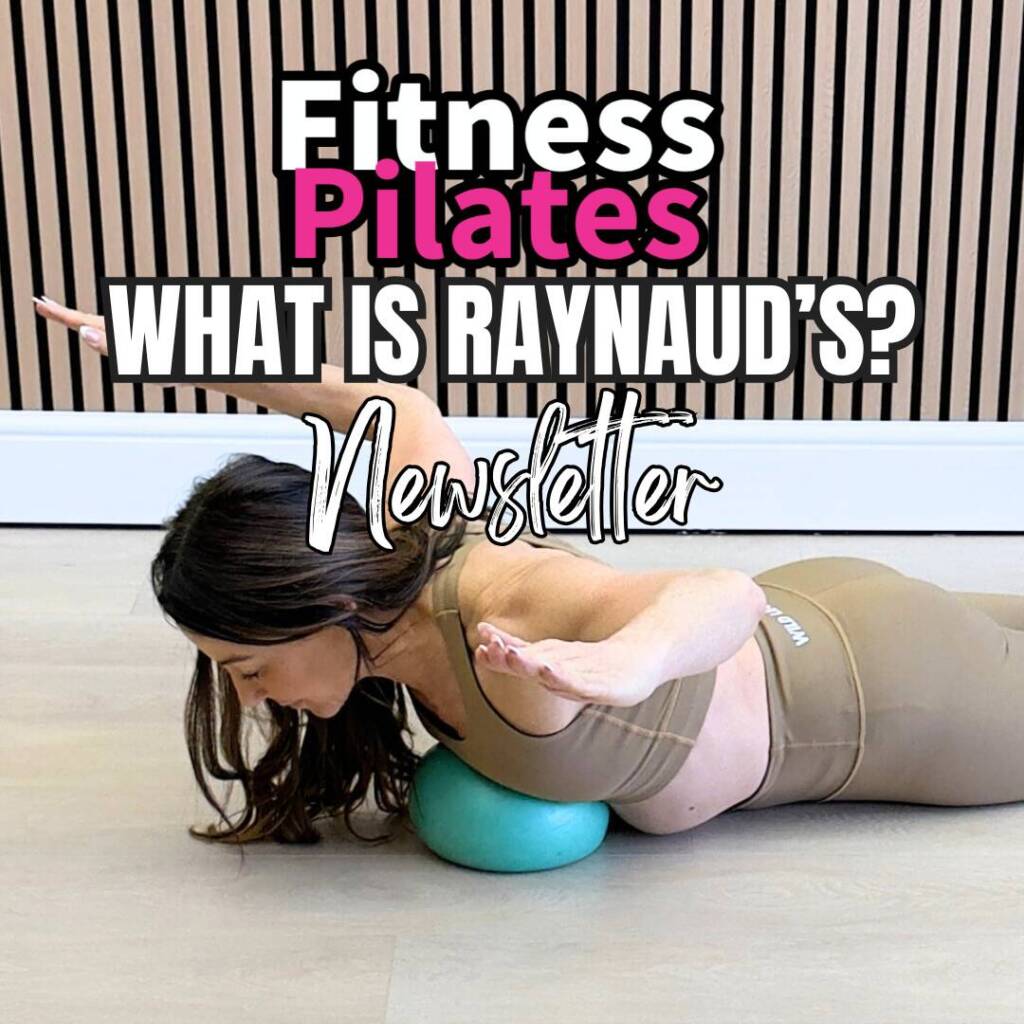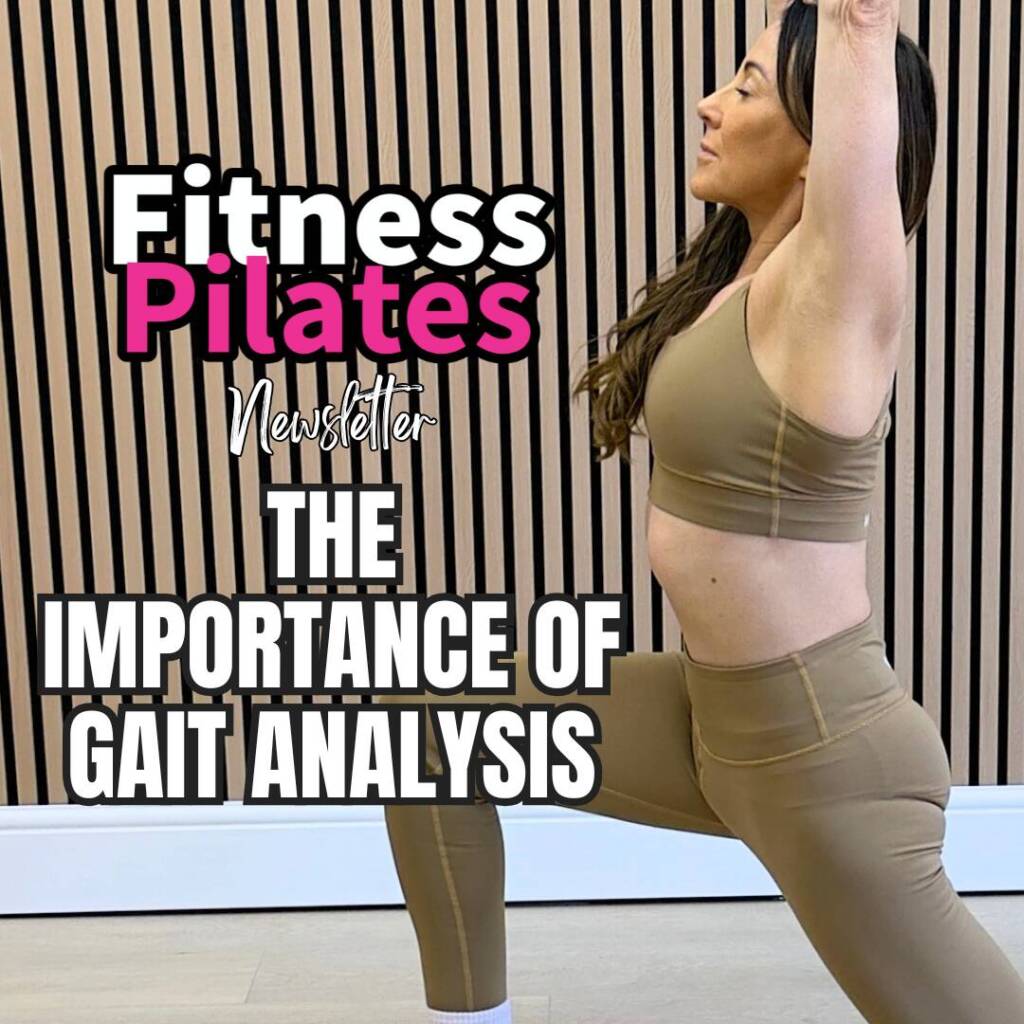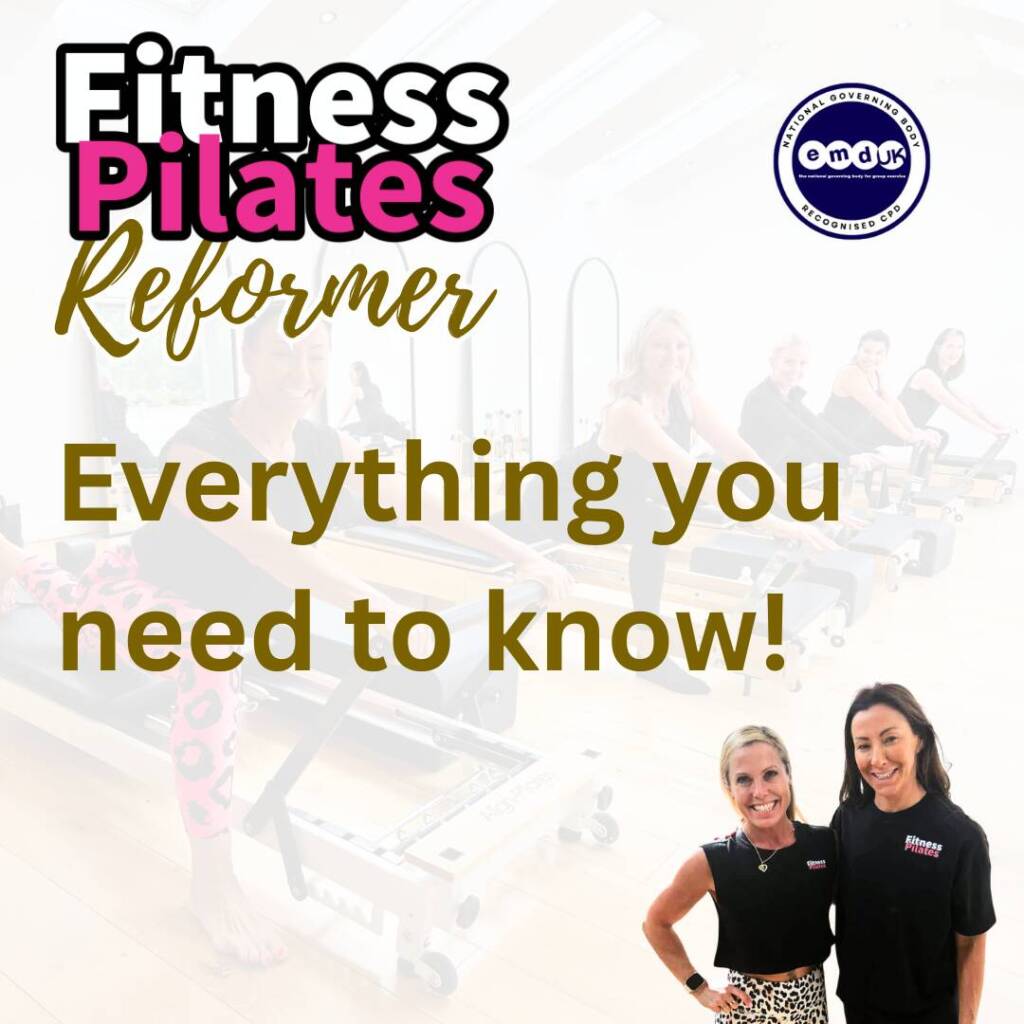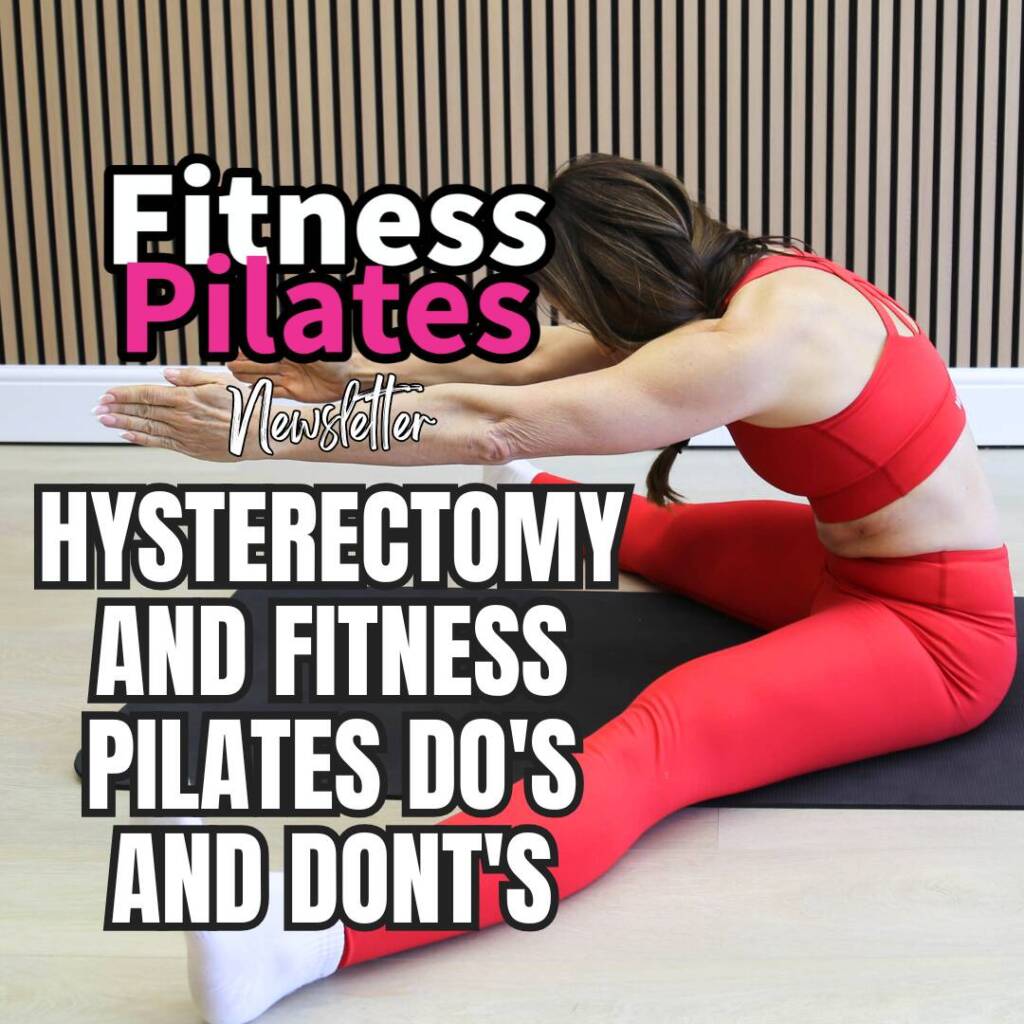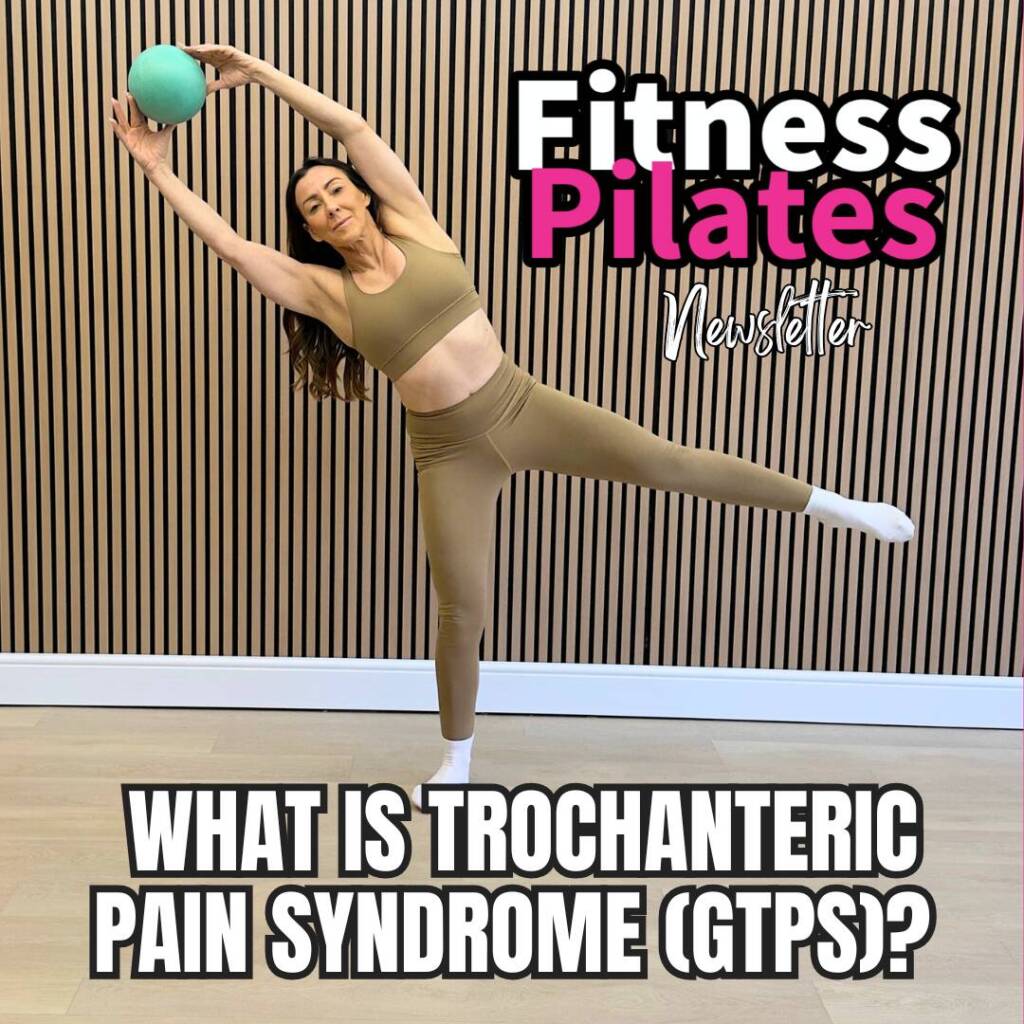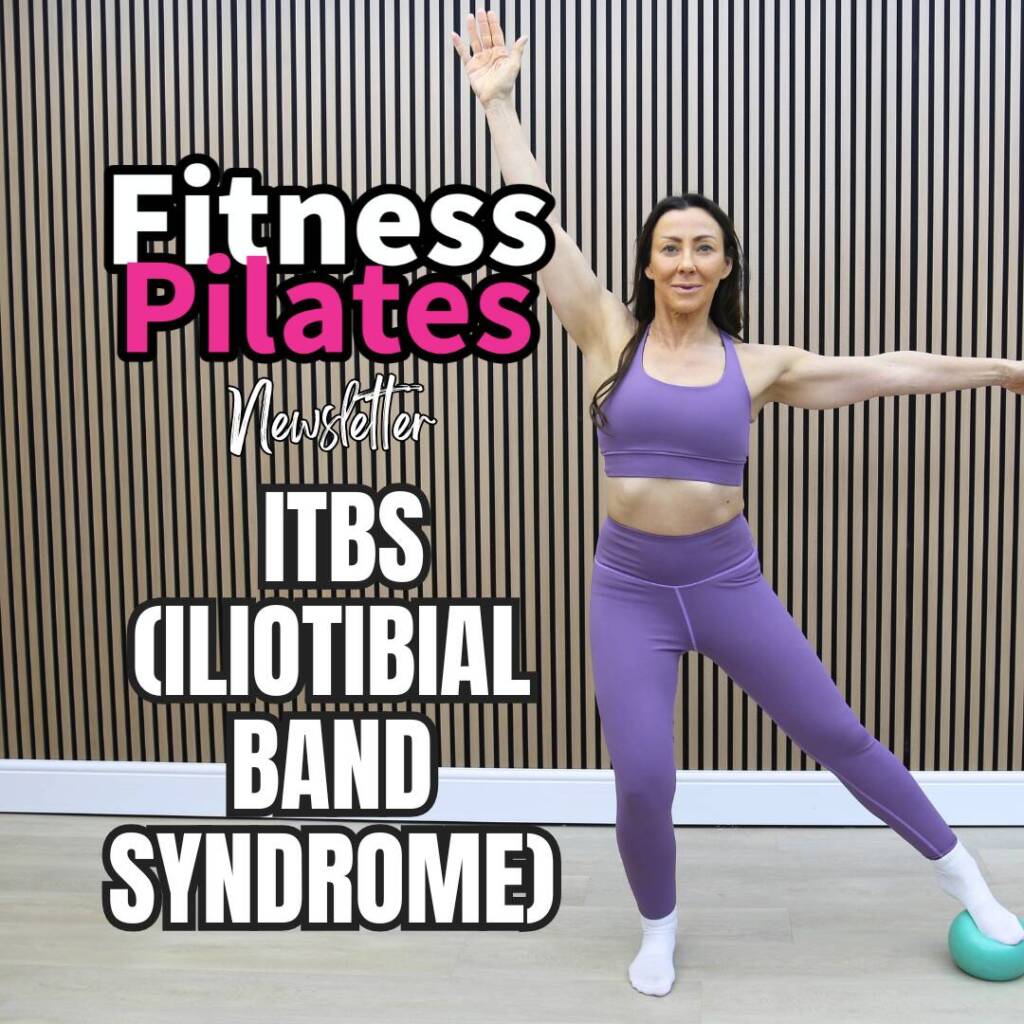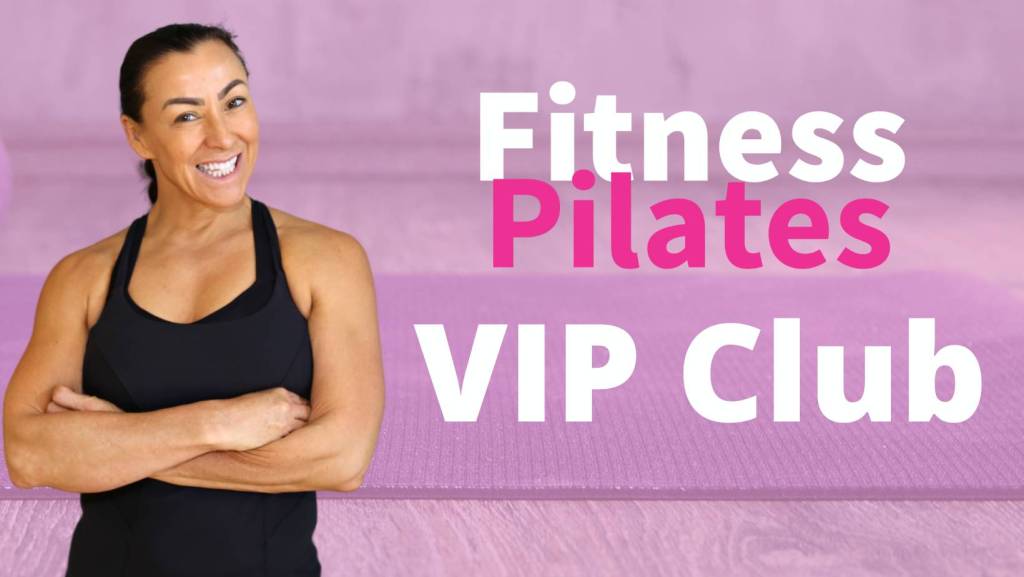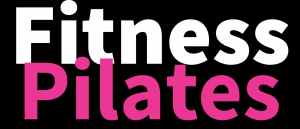
The Fitness Pilates Blog
Common Shoulder Issues Fitness Pilates Newsletter
I hope you’re having a lovely summer and finding time to slow down, enjoy the beautiful weather, or perhaps even get away for a break.
I’ve got some exciting live events coming up this week that you are welcome to join me at. A content Creation workshop and Masterclass in Nottingham, which I can’t wait to deliver, and — weather permitting — I’ll also be running some Pop-Up Pilates in the Park sessions locally.
We’ve now released all of the Fitness Pilates Reformer Online Course dates for booking. We’ll also be introducing small group, face-to-face Reformer training in Derbyshire — details are below if you’d like to join us.
Music-wise, I’ve been using the beautiful sound bath tracks from Pure Energy in my classes this week, really slowing everything down and focusing on technique, alignment, and breathwork.
Today’s focus is on rotator cuff problems — what the rotator cuff is, why injuries are so common, and what you can do about them.
Common Shoulder Issues in Fitness Pilates – Focus on Rotator Cuff
1. What is the Rotator Cuff?
The rotator cuff is a group of four muscles and their tendons that stabilise the shoulder joint and help control arm movement:
- Supraspinatus – lifts the arm out to the side.
- Infraspinatus – externally rotates the shoulder.
- Teres minor – assists with external rotation.
- Subscapularis – internally rotates the shoulder.
2. Common Rotator Cuff Issues
Rotator Cuff Tendinopathy / Tendinitis
- Cause: Overuse, repetitive overhead movements, poor posture, muscle imbalance, or age-related wear.
- Symptoms: Pain lifting the arm, especially between 60–120° of abduction (“painful arc”), weakness, and discomfort lying on the shoulder.
Rotator Cuff Tear (Partial or Full)
- Cause: Trauma, heavy lifting, or progressive degeneration.
- Symptoms: Weakness, limited range of motion, sharp pain, night pain.
Shoulder Impingement Syndrome
- Cause: Rotator cuff tendons become irritated/compressed under the acromion.
- Symptoms: Pain with overhead movement, reduced range of motion, aching at rest.
3. Why It’s Common in Menopausal Women
- Lower oestrogen levels during menopause contribute to a reduction in collagen production, making tendons less elastic and slower to repair.
- Loss of muscle mass (sarcopenia) reduces joint stability.
- Postural changes due to midlife lifestyle factors or bone density loss can alter shoulder mechanics, increasing strain on the rotator cuff.
- Bone and joint changes (early arthritis or osteoporosis) may limit range and increase vulnerability to injury.
4. Treatment & Management
Medical & Rehab Approaches (with GP or physio guidance):
- Rest from aggravating activities.
- Anti-inflammatory medication (if prescribed).
- Physiotherapy exercises for mobility and strengthening.
- Heat or ice for pain management.
- Corticosteroid injections in persistent cases.
- Surgery for severe tears.
5. Fitness Pilates – Safe Exercise Approach
Aims in Pilates:
- Maintain pain-free range of motion.
- Strengthen rotator cuff and scapular stabilisers.
- Improve posture and thoracic mobility.
- Avoid impingement positions and high strain.
Recommended Exercises
(Always start pain-free and progress gradually)
- Scapular setting – lying supine or prone, gently drawing shoulder blades down and together.
- Wall angels – against a wall for postural alignment, keeping movements within pain-free range.
- band external rotation – elbows tucked by the side.
- Swan prep – focuses on upper back extension without overloading the shoulder.
- Side-lying external rotation – light weight or no weight.
- Four-point kneeling arm slides – on floor or ball for stability work.
- Standing arm circles – small, controlled range.
Exercises to Avoid or Modify (in early stages or with active pain)
- High-load overhead presses.
- Deep triceps dips.
- Repeated push-ups or planks if pain is aggravated.
- Sudden ballistic arm movements.
- Long-lever resistance in abduction (e.g., straight-arm raises with load).
6. Teaching Points for Teachers
- Watch for upper trap dominance (shrugging).
- Encourage neutral neck and spine — avoid forward head posture.
- Cue to move within pain-free range; “No pain, yes gain” for shoulders.
- Promote controlled, slow movements to reduce shearing forces.
- Remind clients to breathe — no breath-holding.
- Use tactile or visual cues to encourage scapular control.
7. Simple Self-Assessment for Clients (screen before class)
- Apley’s Scratch Test – Can they touch the opposite shoulder blade from above and below without sharp pain?
- Painful Arc Test – Does lifting the arm to the side hurt between shoulder height and overhead?
- Functional reach – Can they comfortably reach overhead into a cupboard without pain?
Let me know your thoughts and anything you would like me to cover just send me an email or whats app 07976268672
Have a lovely weekend.
Rachel x
I have added a new FITNESS PILATES REFORMER course 21st August
This August, I’m running some exciting new in-person masterclasses and events.
A brilliant chance to connect, create, and train together.
14th August – Content Creation Workshop & Lunch
Create reels, shoot pro content, and enjoy lunch with like-minded fitness pros.
16th August – Aerobics Masterclass
Get ready to move, sweat and relive the retro vibes – an energising, fun-
filled session!
20th September – FITNESS PILATES Summit
An inspiring day of learning, movement and community. Don’t miss this booking details below.
REFORMER DATES
Fitness Pilates Reformer ZOOM
- 21 August
- 24 September
- 22 October
- 26 November
- 17 December
Would you prefer to train in person with Rachel & Kelly in a small, exclusive group?
I will be be launching Derbyshire-only dates this September for teachers who want to do Face-to-Face Reformer training in small exclusive groups – if you are keen for face to face and can travel to Derbyshire please whats app me.
Summer School Qualifications on Offer – see below and Live Events coming up in August
Here are the Summer Sale Offers:
1. Level 2 Group Fitness (ETM) Qualification + STEP Certification Package
Perfect if you’re looking to become a group fitness instructor or refresh your teaching skills. Includes classic ETM plus the timeless, effective Step aerobics format.
2. Level 3 Older Adults Qualification + Level 3 Pre and Post Natal Package
A popular choice for instructors wanting to work with two key client groups. Support midlife and older adults and guide new mums safely and effectively through their fitness journeys.
3. Level 2 Group Fitness (ETM) + Level 3 Older Adults Qualification Package
If you want to teach general group fitness and expand into specialist sessions for older populations, this is a highly practical combo.
4. Level 2 Group Fitness (ETM) + Level 3 Nutrition Qualification Package
Pair movement with knowledge of how to support your clients nutritionally. A great option for instructors ready to offer a more holistic approach.
Level 3 Nutrition Qualification – NOW ONLY £300!
If you’ve been waiting for the right time to add a nutrition qualification to your CV, this is it. Use your summer to gain a new qualification and offer more to your clients come September.
All courses are online, flexible, and supported by our expert education team. Whether you’re full-time in fitness or just starting out, these qualifications are designed to fit around your lifestyle.
Join the weekly free Fitness Pilates newsletter here
JULY PILATES COURSES
Fitness Pilates Training Course 1st August READ MORE HERE
Check out the NEW Fitness Pilates Somatics workshop HERE
Learn all about the NEW Learning lab workshop here for advanced pilates instructors
Join us at the 2025 Fitness Pilates Summit 20th September BOOK YOUR TICKETS
Share this post:
Latest Fitness Pilates Courses & Classes
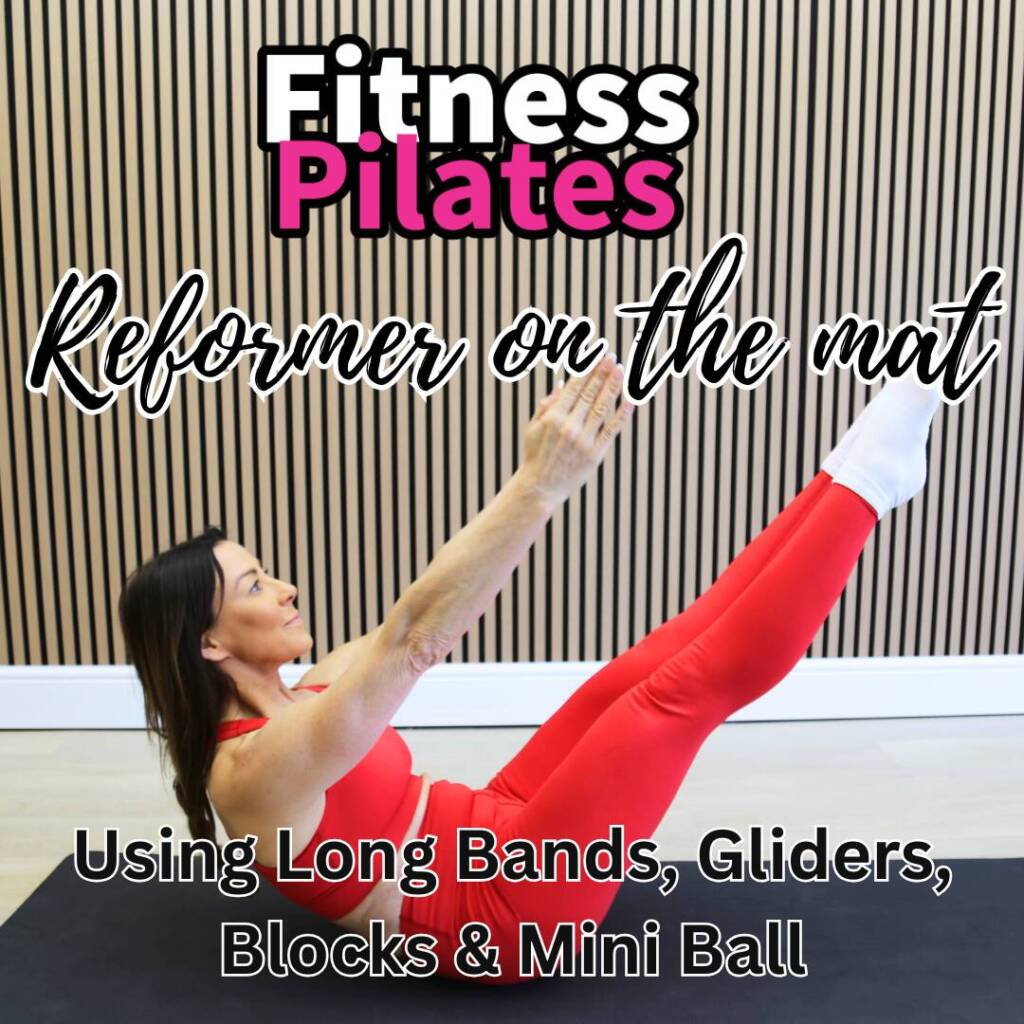
Fitness Pilates Reformer on the Mat Workshop Using Bands, Balls & Gliders
£67.00 Original price was: £67.00.£47.00Current price is: £47.00.
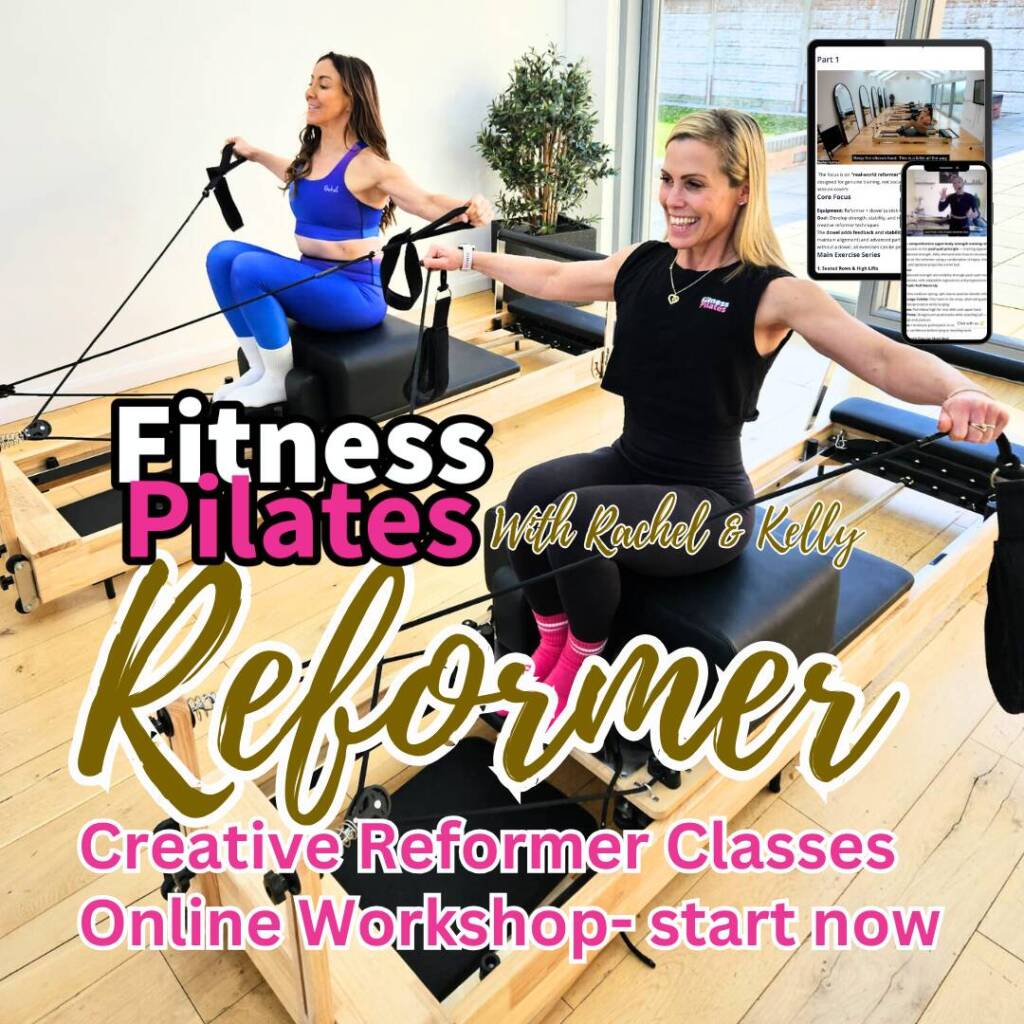
Creative Reformer Classes – Online Workshop
£75.00 Original price was: £75.00.£60.00Current price is: £60.00.
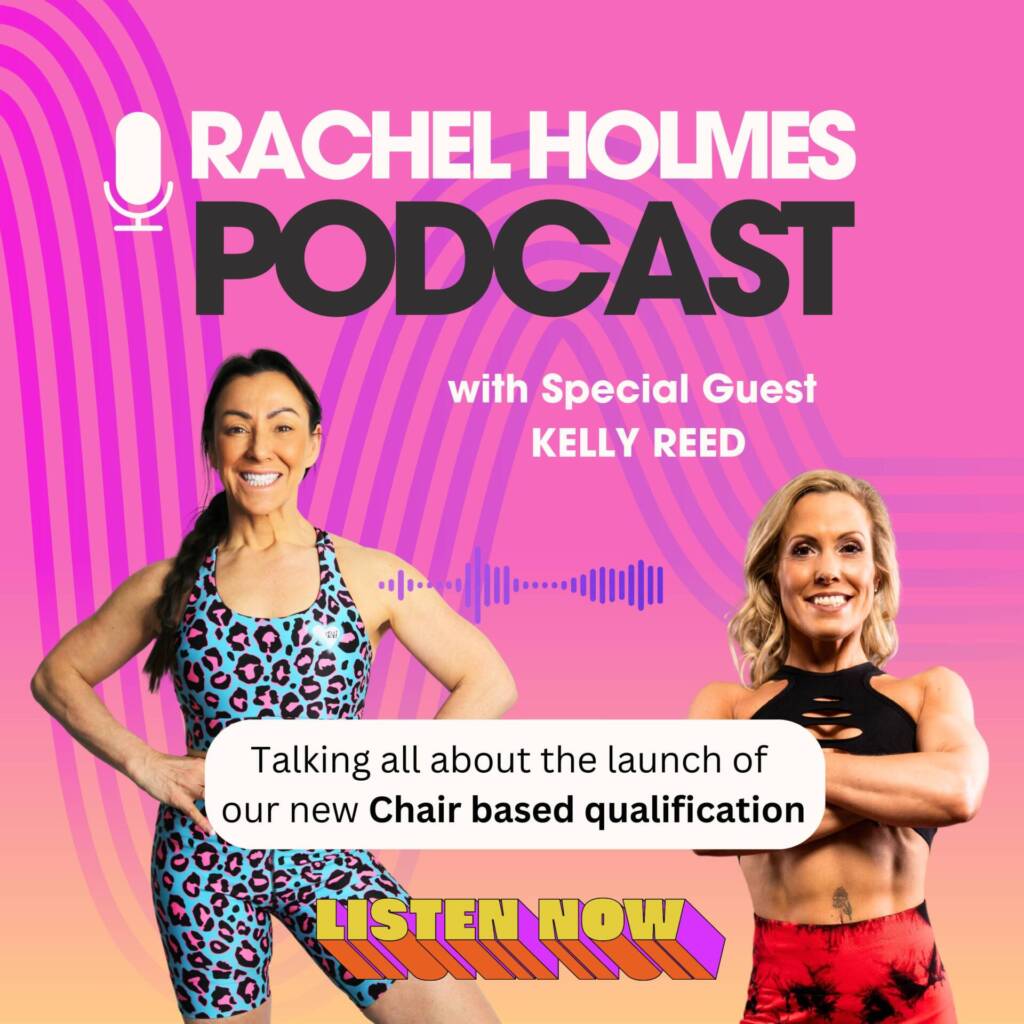
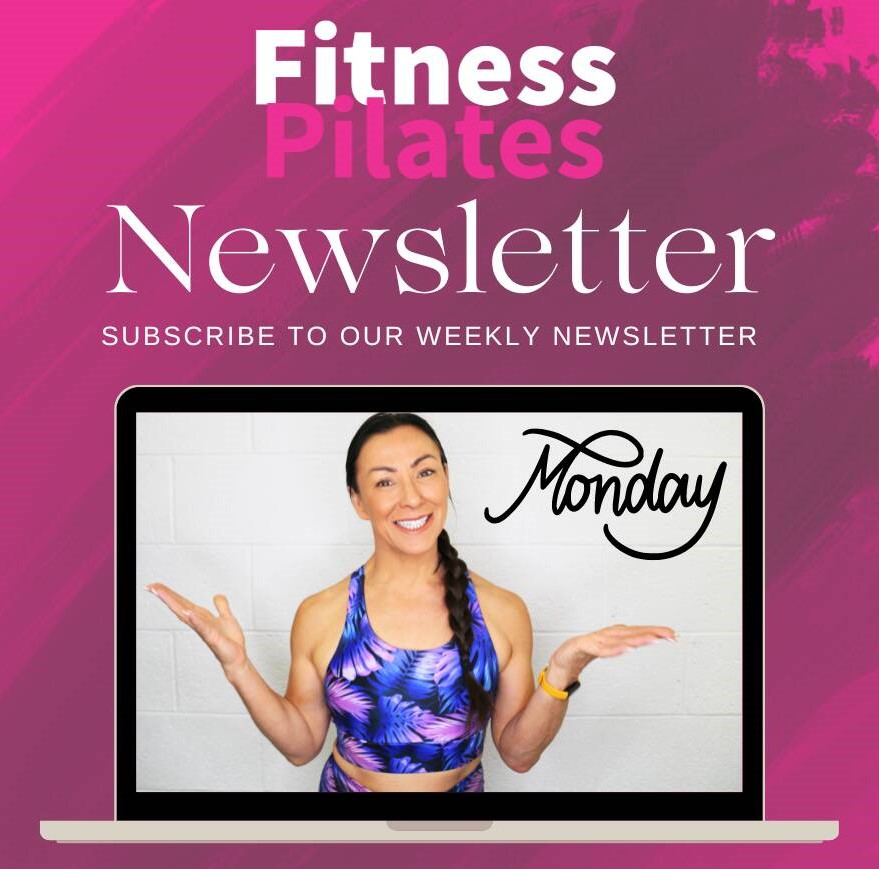
The latest Fitness Pilates blogs & news
Join the Fitness Pilates newsletter
A short description introducing your business and the services to visitors.
